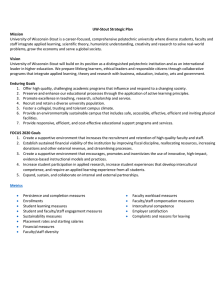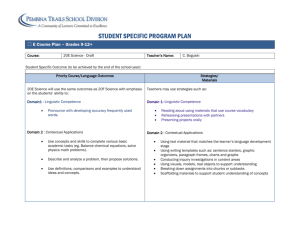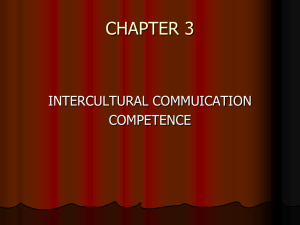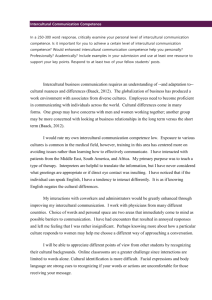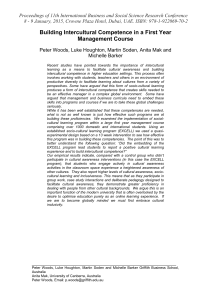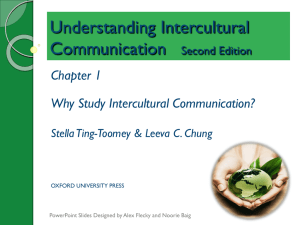Intercultural Communication
advertisement
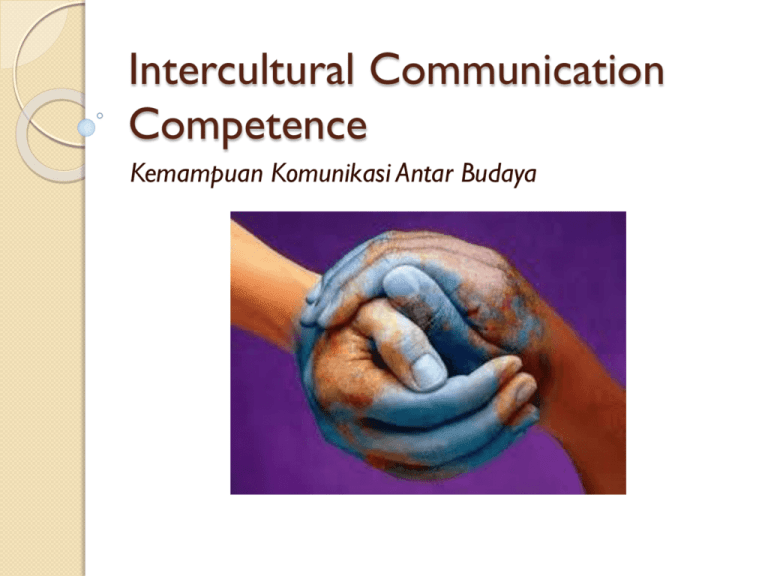
Intercultural Communication Competence Kemampuan Komunikasi Antar Budaya WHY it is needed? as the basic ability for any interaction! It is not only necessary to have social skills, but also to improve the SENSITIVITY and UNDERSTANDING for other VALUES, views, ways of living and thinking, as well as being self-conscious in transferring one’s own values and views in a clear, but appropriate way. helps understanding others and ACHIEVING GOALS. Noun: A person’s principles or standard of behavior; One’s judgment of what is important in life Synonyms: principles, ethics, moral code, morals, standards, code of behavior What are your values? What are your ethics? Culture hides much more than it reveals, and strangely enough what it hides, it hides most effectively from its own participants. Years of study have convinced me that the real job is not to understand foreign culture but to understand our own. –Edward Hall- “The Silent Language” Culture: Iceberg Model Culture: Iceberg Model Geert Hofstede cultural dimensions What is Communication? “The process by which one person stimulates meaning in the mind of another through verbal and non-verbal messages.” –McCroskey (1998) “Interaction that builds connections between people that help them to understand each other and to recognize common interests.” –Zarefsky (1999) What is Intercultural Communication? “Symbolic exchange process whereby individuals from two (or more) different cultural communities negotiate shared meanings in an interactive situation.” – Ting Toomey (1999) What is Intercultural Communication Competence? The ability for successful communication with people of other culture. The understanding of other behaviors and ways of thinking as well as the ability to express one’s own point of view in a transparent way with the aim to be understood and respected by staying flexible where this is possible, and being clear and transparent where this is necessary. Intercultural Communication Competence Components: Attitude Awareness Knowledge Skills Discussion Important points in each component What is the base for intercultural competence? Why? What are the steps to develop intercultural competence? Where do you start? Evaluation What does it mean to be competence? How would you evaluate your own competence?

